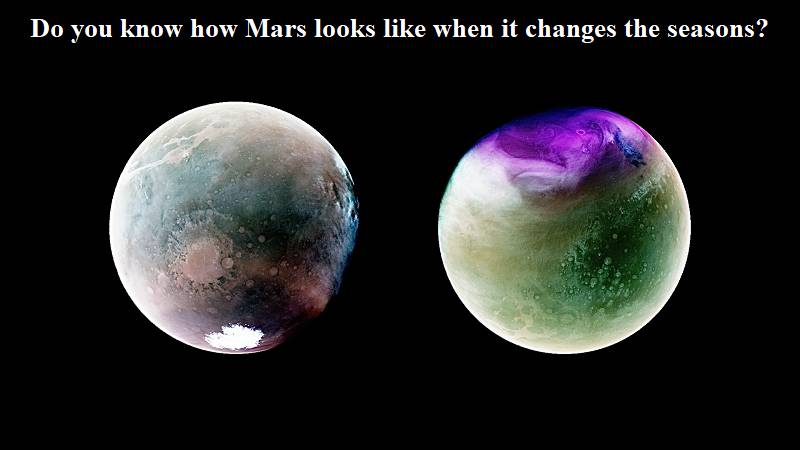
Images captured by NASA’s MAVEN spacecraft showcase the changing attributes of Mars as the seasons progress on the red planet. These photographs were taken during the southern hemisphere’s summer season when Mars was closest to the sun. In January 2023, after Mars’ northern hemisphere reached its farthest point from the sun in its orbit, MAVEN took another set of images.
The images reveal purple regions, indicating the presence of ozone in Mars’ atmosphere, while white and blue areas represent clouds or haze in the planet’s sky. The surface of Mars appears tan or green in these newly captured images. NASA officials emphasize that observing Mars in ultraviolet wavelengths provides valuable insights into the Martian atmosphere and enables the observation of surface features in unique ways.
Similar to Earth, Mars also experiences four distinct seasons due to its tilted axis. However, the Martian seasons are roughly twice as long as those on Earth due to its longer year. During the southern summer, when Mars’ southern hemisphere tilts toward the sun and the planet is closest to it, significantly higher temperatures occur compared to the northern summer. This temperature increase leads to turbulence, stronger winds, and larger dust storms in the southern hemisphere.
The warmer temperatures of summer cause the southern polar ice caps to shrink, releasing carbon dioxide and thickening the atmosphere. MAVEN has also detected an increase in hydrogen loss from Mars during this time, likely caused by dust storms propelling water vapor to high altitudes.
Studying these systems provides scientists with a better understanding of Mars’ evolutionary history. It offers insights into the planet’s past atmosphere, climate, the presence of liquid water, and the potential for habitability.
MAVEN, launched in November 2013 to study Mars’ atmospheric gases, will soon celebrate its 10-year anniversary since entering Mars’ orbit in September 2014. The mission continues to provide valuable data and contribute to our knowledge of the Red Planet.

Post Your Comments